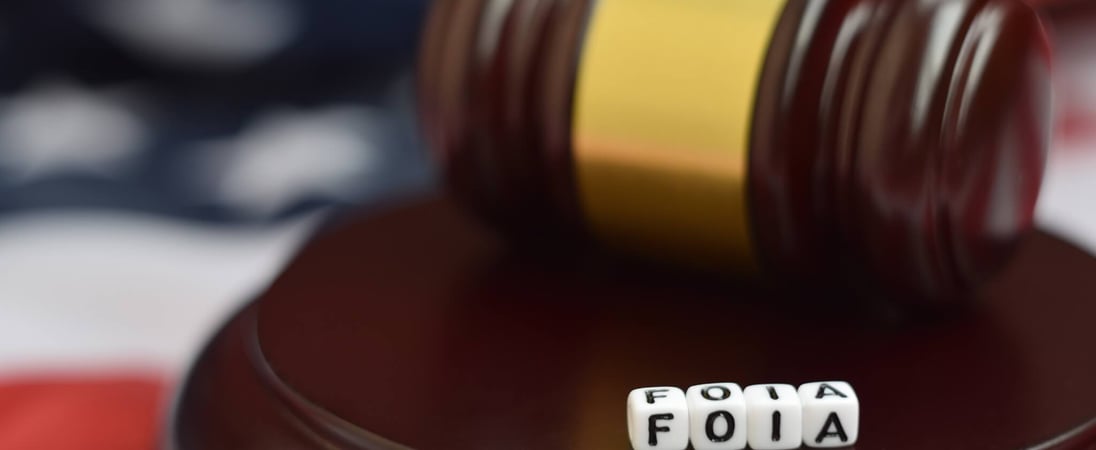
Sunshine Week
Championing openness, a citizen's call for clarity and fairness, fostering trust and accountability in governance for a thriving society.
Sunshine Week is a special time of the year for shining a light on the importance of open government and freedom of information. The week-long celebration coincides with National Freedom of Information Day, though these events do far more than commemorate a piece of legislation. Instead, it is a call to action for transparency, accountability, and open dialogue from the government.
It’s a week that celebrates a civic responsibility to hold the government accountable. It encourages citizens, journalists, and government representation all to engage in meaningful discussions about the critical need for public access to public information and its role in a democratic society.
History of Sunshine Week
The roots of Sunshine Week took hold in the early days following the passage of the Freedom of Information Act (FOIA) — a pivotal piece of legislation in the United States. The journey to this landmark act began in 1952 after Californians sent John Moss to represent them in the United States Congress.
During the Cold War era, government had become the norm — even for elected officials. Moss faced challenges when he tried to access information necessary to carry out his many congressional duties. The experience of hitting these roadblocks propelled him to become a champion in the cause of government transparency.
By 1955, Moss was serving as the chairman of a congressional subcommittee on government information. He decided it was necessary to start holding hearings and investigating instances of the U.S. government withholding information. Despite initial resistance, he was dogged in shining daylight on the problem of governmental agencies keeping secrets. His efforts gained steam, with growing support from journalists, universities, and scientists. Together, the growing outpouring of support for FOIA legislation turned the tides on the fight for transparency. A significant breakthrough came when Donald Rumsfeld, a young representative from Illinois, co-sponsored the bill.
President Lyndon B. Johnson signed FOIA into law on Independence Day, July 4, 1966. This piece of legislation marked a historic moment for open governance in the United States. This act empowered citizens and journalists with the right to access information controlled by the government. The Freedom of Information Act set the groundwork for what would become Sunshine Week.
How to Celebrate Sunshine Week
Participate in Local Events
During Sunshine Week, many libraries, schools, civic groups, and media organizations hold special events to help build civic engagement. Sunshine Week events often include panel discussions, workshops, and seminars that educate citizens about open government and transparency. Encouraging citizens to participate in these events is an excellent way to engage with the community. It also teaches communities more about the free access to information.
Spread Awareness on Social Media
Use social media platforms to raise awareness about Sunshine Week and why government transparency is essential for a free citizenry. Share articles, infographics, and opinions on the subject. Using hashtags (even if not official), like #SunshineWeek or #OpenGovernment. Sharing on social media will help to spread the message further.
Host a Sunshine Week Activity
Those who are part of any civic organization or group, may want to consider holding their own Sunshine Week event. Some good activities could be a local forum with a local officeholder, a debate on government transparency, or even an essay writing contest with the theme of open governance.
Educational Outreach
Schools and colleges might organize special sessions or curricula focusing on the Freedom of Information Act and the reasons for open government. This can include mock FOIA request exercises, discussions on famous cases of governmental transparency, and guest speakers (think journalists or government administrators).
Engage with Local Government
Reach out to local government officials or attend council meetings to send the message that the upholding of transparency within the local community is continually expected. Encourage the local school board or town council members to participate in the celebration by holding open houses or Q&A sessions.
Documentary Screenings and Book Clubs
Set up screenings of documentaries related to government transparency and FOIA. Book clubs can also focus on readings that explore these themes to provide a platform for discussion and engagement.
Write to Local Elected Representatives
Sunshine Week is a fabulous opportunity to write to local or congressional representatives about open government laws. Personal letters can be a powerful tool when advocating for policy changes or expressing support for transparency — both existing laws and upcoming initiatives.
Sunshine Week is more than just a commemoration. Instead, it should remind everyone of the ongoing need for government accountability. By participating in Sunshine Week activities, and demanding ongoing transparency, everybody contributes to supporting a more informed and democratic society.
Also on ...
View all holidaysNational Plant a Flower Day
Brighten up your garden with a kaleidoscope of colors and sweet fragrances. Put your green thumb to the test and bring nature to life!
National Napping Day
Taking a little daytime snooze is like hitting the reset button, recharging energy levels and boosting productivity in a flash.
National Good Samaritan Day
Kind-hearted individuals shine, making a positive impact through selfless acts, emphasizing the beauty of compassion and generosity.




